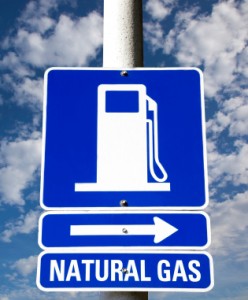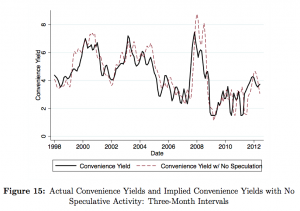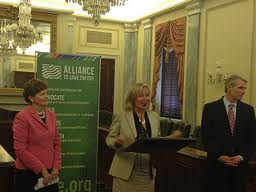587 item(s) were returned.
Visiting Fellow
Hudson Institute
This discussion was co-authored by J. Eric Bickel, Assistant Professor, The University of Texas at Austin. Measures to reduce greenhouse gas (GHG) emissions have dominated public discourse about responses to man-made climate change. However, major institutional and political hurdles dim the prospects for controlling emissions. Solar Radiation Management (SRM) appears to promise at least some capacity to offset manmade warming. SRM would seek to manage physical processes that reflect sunlight back into space. For example, researchers have envisioned adding to the layer of aerosols already present in the lower stratosphere. All else remaining equal, global mean temperatures would fall even… [more]
View InsightPartner
KL Gates
Energy and water are linked in many ways. Most energy production requires huge amounts of fresh water, while the consumption of water for domestic and agricultural demands uses large amounts of energy. Future water availability, whether from long distance transport or desalination, will require even greater amounts of energy. Water scarcity, especially in the U.S. west of the Mississippi River, as well as in the Southeast, has become a growing source of concern and tension. Consequently, water availability is becoming an important consideration for energy projects in certain regions. The potential for the demand for water to outstrip available supply… [more]
View InsightSenior Policy Analyst
Information Technology and Innovation Foundation
Don’t be fooled by the lack of “climate” in the policy title — the America COMPETES Act is just as important to addressing climate change as it is to its originally stated goal of strengthening U.S. international competitiveness. The legislation — which was passed in 2007, first reauthorized in 2010, and is up for reauthorization again this year — directly supports science and technology institutions that underpin the United States innovation infrastructure, including the development of clean energy. The COMPETES Acts has supported clean energy innovation through creation of the DOE’s ARPA-E and proposed a long list of educational reforms.… [more]
View InsightThe Information Technology and Innovation Foundation (ITIF) is a non-partisan think tank whose mission is to formulate and promote public policies to advance technological innovation and productivity internationally, in Washington, and in the states. Recognizing the vital role of technology in ensuring prosperity, ITIF focuses on innovation, productivity, digital economy and energy innovation issues.
View InsightPennsylvania’s Act 13 of 2012 created a three-year Natural Gas Energy Development Program that will allocate $20 million in grant funds to purchase or convert vehicles to natural gas. The goal of Act 13 is “to help the state’s ongoing effort to move towards energy independence.” Last week, Pennsylvania’s Department of Environmental Protection issued the first $6.7 million of the competitive grant funds to 18 organizations across the state. The grant money comes from Pennsylvania’s drilling impact fee, which has raised $200 million from the gas industry flourishing in the Marcellus Shale. The grants are capped at 50 percent of… [more]
View InsightThe new Secretary of Energy and MIT physicist, Ernest Moniz, has often cited nuclear power as an important means of developing a low-carbon future for America. Moniz has also advocated the use of natural gas for its economic, environmental and energy security benefits, as outlined in a report he authored while at MIT, “The Future of Natural Gas.” So what can we expect from the next Secretary of Energy? Throughout his confirmation process, which has taken place over the past six weeks, Secretary Moniz reiterated the need for an “all-of-the-above” strategy, while expressing his belief that the government is underinvesting… [more]
View InsightThe crude oil price spikes and high fuel costs experienced in the U.S. over the past ten years have encouraged many attempts to identify the underlying causes of these trends. Diminishing oil resources, slowing rates and increasing costs of production, financial speculation and geopolitics are all common arguments used to explain the recent volatile price changes in oil. But is there a correct answer? According to a recent MIT study, one theory can be ruled out: financial speculation. “We show speculation had little, if any, effect on prices and volatility,” and may have even decreased prices, wrote the authors of… [more]
View InsightAccording to a recently released Harvard Law School report, the website FracFocus.org “fails as a regulatory compliance tool” for energy companies developing oil and gas wells using hydraulic fracturing. FracFocus, an online national hydraulic fracturing chemical registry managed by the Ground Water Protection Council and Interstate Oil and Gas Compact Commission, was established to provide the public with access to reported chemicals used for hydraulic fracturing within their area. Currently 11 of the 18 states that require disclosure of hydraulic fracturing chemicals allow companies to use FracFocus as their reporting method. FracFocus was also proposed by the Bureau of Land… [more]
View InsightSenior Vice President of Policy & Research
Alliance to Save Energy
Senators Jeanne Shaheen (D-N.H.) and Rob Portman (R-Ohio) recently reintroduced the Energy Savings and Industrial Competitiveness Act (ESICA), S. 761. This bipartisan legislation will spur the use of energy efficiency technologies across residential, commercial and industrial sectors, while fostering job creation. Energy efficiency is the best way to address our energy needs, increase the competitiveness of our businesses and create sustainable jobs. ESICA is supported by over 200 entities, from industry to environmentalists, ranging from Dow Chemical to the Sierra Club. This broad support illustrates the value of identifying points of consensus and how energy efficiency is such an area… [more]
View InsightUniversity Distinguished Professor
Michigan State University, Dept. of Chemical Engineering
High energy use (power consumption) increases wealth, health and education levels. Since the beginning of the Industrial Revolution, most energy has come from fossil fuels: coal, oil and natural gas. Whatever the eventual lifetimes of these fossil energy resources, they are not renewable. Sooner or later, fossil energy will not be available to underpin our prosperity. Thus non-renewable energy is not a long-term option. We must have renewable energy if we are to maintain high living standards among advanced economies, and if more people in developing nations are to access enough energy to develop their human potential. But how much… [more]
View Insight







